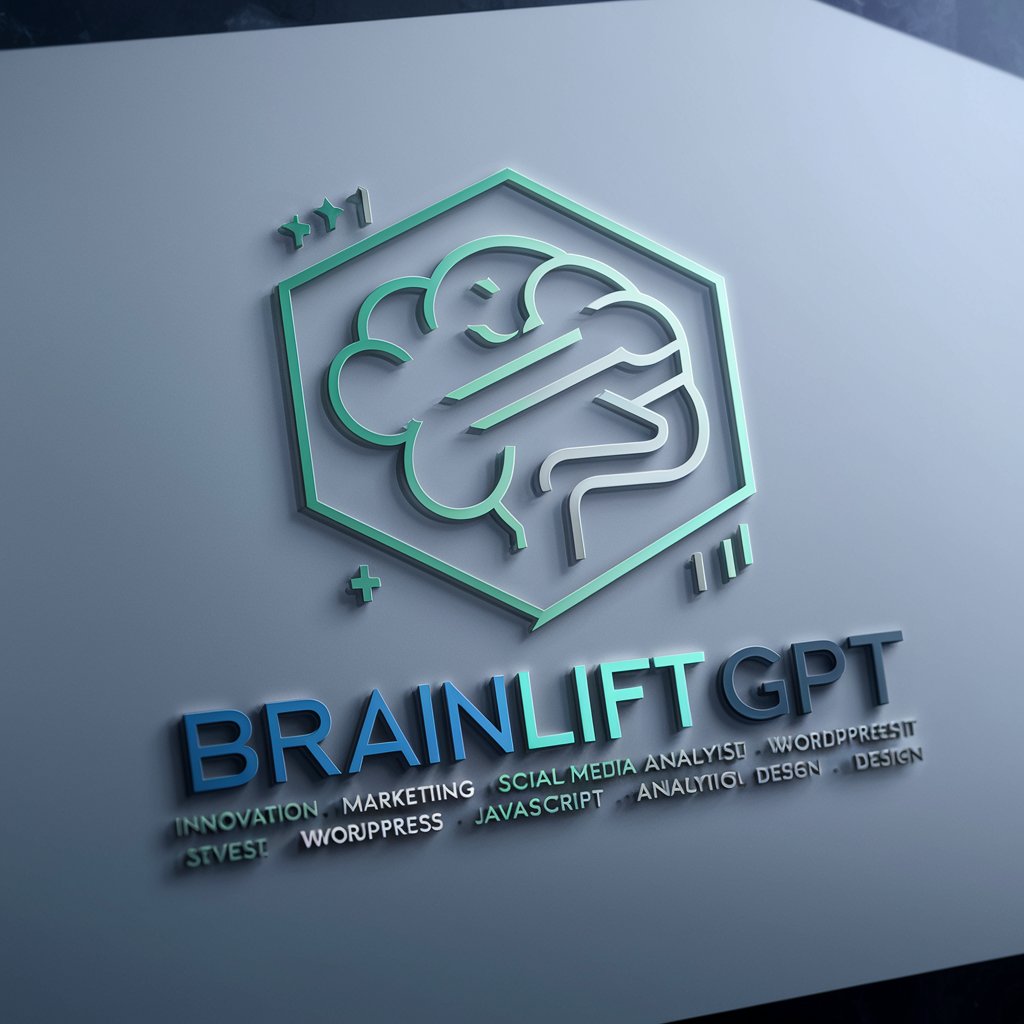
LiFt - Research Paper Analysis Tool

Welcome to LiFt! Ready to explore a research paper?
Empowering Your Research with AI
Start with the big picture of a paper
Dive into the details of the research
Evaluate the paper's detailed aspects
Ask creative questions about the paper
Get Embed Code
Overview of LiFt
LiFt, short for 'Literature Finder and Thinker,' is a specialized AI tool designed to streamline the process of analyzing research papers across various disciplines. Its core purpose is to aid users in swiftly navigating the complex landscape of academic literature, offering insights into the broad themes and intricate details of research works. Unlike general-purpose AI, LiFt is specifically tailored for academic and research contexts, emphasizing a deep dive into papers' content, methodology, and implications. For example, when presented with a paper on renewable energy advancements, LiFt can elucidate the study's scope, identify its contributions to the field, and critically examine the methods and findings, thereby facilitating a comprehensive understanding for the user. Powered by ChatGPT-4o。

Core Functions of LiFt
Get the Big Picture
Example
A user uploads a paper on machine learning ethics. LiFt summarizes the research area, outlines the ethical issues addressed, compares with related works, and highlights the paper's novel contributions.
Scenario
This function is particularly useful for researchers or students beginning to explore a new field, allowing them to quickly grasp the essence of a paper without delving into technical specifics.
Get the Details
Example
Upon analyzing a study on climate change impacts, LiFt dissects the specific research questions, the methodologies employed to answer them, the data sources used, and the assumptions made, providing a detailed overview of the study's approach.
Scenario
Useful for researchers or practitioners looking for a deeper understanding of a study's methodology or for those seeking to replicate or build upon the research.
Evaluate the Details
Example
LiFt critically assesses the strengths and weaknesses of a paper's evidence on neuroplasticity, considering the robustness of the methodology, the validity of the conclusions drawn, and identifying any potential biases.
Scenario
Ideal for peer reviewers, researchers, or students who need to critically evaluate a paper for validity, reliability, and academic rigor.
Creative Questions
Example
After examining a paper on artificial photosynthesis, LiFt proposes hypothetical scenarios and questions about potential applications in renewable energy, encouraging users to think beyond the paper's scope.
Scenario
This function supports educators, students, and researchers in ideation, hypothesis generation, and exploring future research avenues.
Who Benefits from LiFt
Academic Researchers
Scholars who need to stay abreast of the latest research findings, understand new methodologies, or conduct literature reviews. LiFt aids in comprehensively analyzing and synthesizing diverse studies swiftly.
Students
Undergraduate and graduate students who require assistance in navigating academic papers for their courses, theses, or dissertations. LiFt helps demystify complex research findings and methodologies.
Educators
Teachers and professors looking to incorporate the latest research findings into their curriculum or seeking new methods to stimulate critical thinking and research interest among students.
Industry Professionals
Professionals in research and development sectors who need to apply the latest scientific discoveries or technological advancements to solve real-world problems.

How to Utilize LiFt: A Step-by-Step Guide
Begin Your Journey
Start by visiting yeschat.ai, where you can explore LiFt's capabilities without any login requirements or the need for a ChatGPT Plus subscription, offering a hassle-free initial experience.
Choose Your Path
Select between 'Get the Big Picture' for a broad overview of a research paper, including its field, problem, and contributions, or 'Get the Details' for an in-depth analysis of specific aspects like research questions and solutions.
Deep Dive into Details
If you've chosen 'Get the Details,' prepare to explore the nuances of the paper, including methodologies, data analysis, and the effectiveness of proposed solutions. This step is crucial for those needing an intricate understanding.
Critically Evaluate
Engage with the 'Evaluate the Details' function to critically assess the paper's findings, evidence, and arguments. This step fosters a critical mindset, encouraging users to question and reflect on the research's validity.
Explore Creatively
Use 'Creative Questions' to pose innovative queries about the paper. This encourages a deeper connection with the material, inspiring novel insights and applications of the research findings.
Try other advanced and practical GPTs
Game Builder AI
Unleash Creativity with AI Game Design

Tradestation Coding Wizard AI
Automating your trade strategy with AI power.

AI Code
Empowering Your Coding Journey with AI

Optimus Prompt: Custom GPT Prompt Optimizer
Elevate Your AI Interactions

Mindful Mike
Your AI Companion for Mindful Living

Sus Salt
Deepening insights with every query.
Lift Content Creator
Elevate Your Content with AI

Crane Lift Leader
Elevating crane operations with AI-driven insights.

Boat Lift Guide
Elevate Your Boat Safely with AI

Lift Purchase Advisor
Elevating Your Choices with AI

LIFT Business Planner
Craft Your Business Future with AI

Lift Tech Pro
Elevating Industry Standards with AI

Frequently Asked Questions about LiFt
What makes LiFt unique in analyzing research papers?
LiFt stands out due to its structured approach, offering both broad overviews and detailed analyses of research papers. It supports critical evaluation and encourages creative exploration, making it a comprehensive tool for scholars and students alike.
Can LiFt help in understanding complex scientific papers?
Absolutely. LiFt is designed to break down complex scientific papers into more understandable segments, helping users grasp the core concepts, methodologies, and findings, irrespective of the paper's complexity.
Is LiFt suitable for use in academic teaching?
Yes, LiFt serves as an excellent resource for academic teaching, providing a platform for students to learn how to analyze, critique, and understand research papers deeply, thereby enhancing their research skills.
How does the 'Creative Questions' feature of LiFt enhance research comprehension?
The 'Creative Questions' feature prompts users to think beyond the paper's contents, fostering innovative thinking and enabling a deeper understanding of the research's implications and potential real-world applications.
Can LiFt assist in literature review for thesis writing?
LiFt is an invaluable tool for conducting literature reviews, offering detailed insights into each paper's contributions and relevance, thus aiding in the identification and synthesis of key research relevant to a thesis topic.





